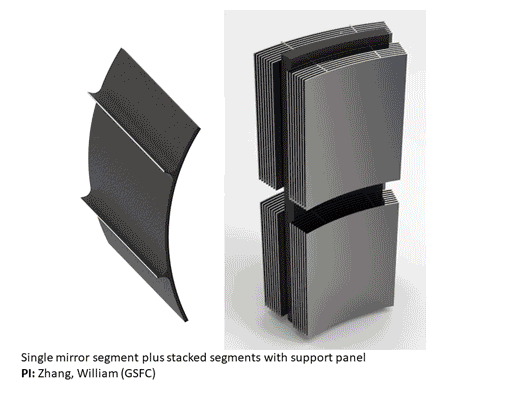Pasadena, California
12 – 16 June 2022
The Physics of the Cosmos (PCOS) Program lies at the intersection of physics and astronomy. Its purpose is to explore some of the most fundamental questions regarding the physical forces and laws of the universe.
Sunday, 12 June 2022
Sheraton Pasadena Hotel, Piazza Room
| 3:00 – 5:00 PM Pacific | 4:00 – 6:00 PM Mountain | 5:00 – 7:00 PM Central | 6:00 – 8:00 PM Eastern |
| Time | Event |
|---|---|
| 3:00 – 4:30 PM | Keynote speaker: Paul Hertz, NASA Astrophysics Division Director Presentation [PDF] |
| Followed by presentations on Astrophysics technology development | |
| 4:30 – 4:45 PM | The 2022 APD Technology Gap List |
| Opher Ganel, PCOS/COR Technologist Presentation [PDF] Abstract: We will present the results from the community-submitted technology gaps process which factored in the recommendations of Astro2020. We will describe the process taken to collect, evaluate, disposition, and prioritize the gaps along with their assessment criteria. We will also show how to publicly access all the details. |
|
| 4:30 – 4:45 PM | Stage 1 Technology Activities for the Next Great Observatories |
| Nick Siegler, ExEP Program Chief Technologist Presentation [PDF] Abstract: NASA's Astrophysics Division has rolled out a response to Astro2020 that includes a focus on pre-cursor science and technology development. Here we will present the expected technology development activities during Stage 1. We will describe expected deliverables, the team that will serve in developing the high-level roadmaps to close the technology gaps, and how the community can get involved. |
|
Wednesday, 15 June 2022
10:00 AM Pacific | 11:00 AM Mountain | 12:00 PM Central | 1:00 PM Eastern
At the 240th AAS meeting, there will be a splinter session consisting of a short overview by NHFP Program Scientist Patricia Knezek, followed by a panel-moderated discussion focused on obtaining feedback from the community abouve t the relatipriority of the recommendations and thoughts about effective ways to address the recommendations. The community is encouraged to attend either in-person at the AAS, or via WebEx:
Community Survey: Whether you can attend the AAS splinter session or not, we solicit your input via a form linked at the NHFP website. Prompt community input will help prioritize the splinter session discussions, but the survey in this form will remain available to the public until 1 August 2022.
Sunday, 12 June 2022
| 1:00 – 3:00 PM Pacific | 2:00 – 4:00 PM Mountain | 3:00 – 5:00 PM Central | 4:00 – 6:00 PM Eastern |
| Time | Event |
|---|---|
| 1:00 – 1:20 PM | State of the Program Office |
| Brian Williams Physics of the Cosmos Chief Scientist Presentation [PDF] |
|
| 1:20 – 1:40 PM | Our New Epoch of Discovery |
| Grant Tremblay PhysPAG Executive Committee Chair Presentation [PDF] |
|
| 1:40 – 2:30 PM | Moderated Community Discussion |
| This is a remarkable time in the history of our field, and the first time many of us will be meeting in person. We know the community has much to discuss, and we'll use this hour to facilitate that. We welcome all questions and discussion-starters from both in-person and virtual attendees. Members of the PhysPAG EC will serve as moderators and panelists. |
| Sunday, 12 June | ||
|---|---|---|
| Time | Speaker | Title |
| 18:16 – 18:28 | Grant Tremblay Astrophysicist, APD |
The New Great Observatories |
Examples of strategic technology developments funded by the Astrophysics Division, and managed by the PCOS and COR Program Offices.
 |
For more information about these technologies, download the PDF or visit our Technology Database.